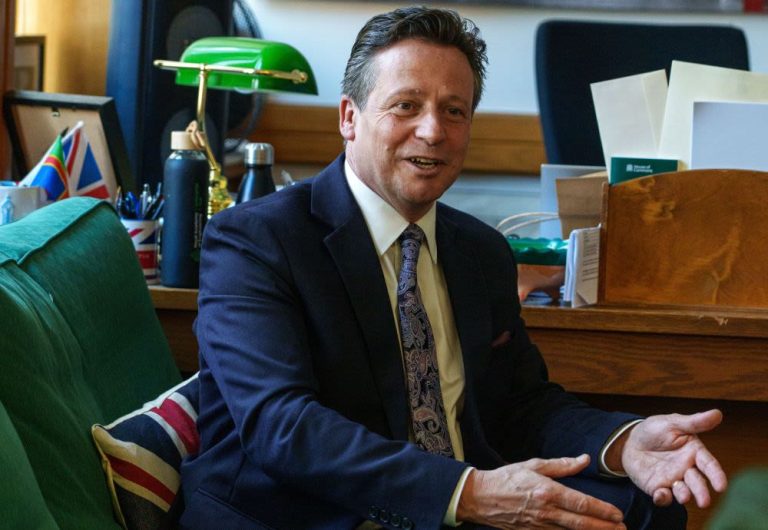
The UK is facing a new era of security challenges, prompting former Defence Minister Tobias Ellwood to issue a stark warning: households must be prepared for potential attacks by stockpiling essential emergency items. Ellwood, who also served as chair of the House of Commons Defence Committee, argues that the public needs to be prepared for ‘grey-zone’ warfare, which encompasses non-traditional threats such as cyber warfare and disruptions to critical infrastructure.
Understanding Grey-Zone Warfare
Ellwood uses the term ‘grey-zone’ warfare to describe covert operations and attacks that do not involve direct military engagement but are intended to destabilize a nation. These tactics aim to weaken economies, disrupt infrastructures, and instigate public panic. Unlike traditional warfare, grey-zone tactics exploit vulnerabilities in cyber infrastructure and civilian preparedness. Ellwood stresses that the era of complacency is over and the UK must take proactive steps to safeguard against such threats.
Essential Items for Preparedness
In preparation for potential disruptions, Ellwood advises every household to consider stockpiling the following items to endure at least 72 hours without external aid:
- 100 liters of clean water
- Non-perishable food that is ready-to-eat or can be consumed cold
- Candles and a working torch
- A battery-powered radio for news updates
- Iodine tablets for nuclear fallout protection
- Cash in case digital transactions fail
- A basic first aid kit
These preparations aim to ensure that households can sustain themselves temporarily in the event of power outages, water shortages, or communication blackouts.
The Threat to Infrastructure
Ellwood cites undersea cables as a particular area of concern, noting that Russia’s ‘shadow fleet’ is reportedly mapping the UK’s cable networks that deliver critical utilities such as electricity, gas, and data. Autonomous underwater vehicles have been observed gathering intelligence on these crucial infrastructures, posing a potential threat to national security.
Enhancing National Resilience
Ellwood suggests that while individual preparedness is crucial, a broader national strategy is imperative. He emphasizes the role of Local Resilience Forums—multi-agency partnerships including councils, emergency services, and the NHS—as vital to the UK’s defense strategy. He calls for these forums to be revitalized, with councils actively engaging the public and organizing practice scenarios for cyber-attacks and other emergency situations.
Ellwood’s warning comes amid growing concerns about the UK’s ability to defend itself, especially after the US under Donald Trump’s administration suggested a decreased military support for Europe. In the House magazine, Ellwood calls for national vigilance and proactive measures to strengthen Britain’s resilience against contemporary threats. He insists that preparation should be both mental and physical to prevent panic during any disruption, highlighting the need to revive and practice emergency response plans across communities.




